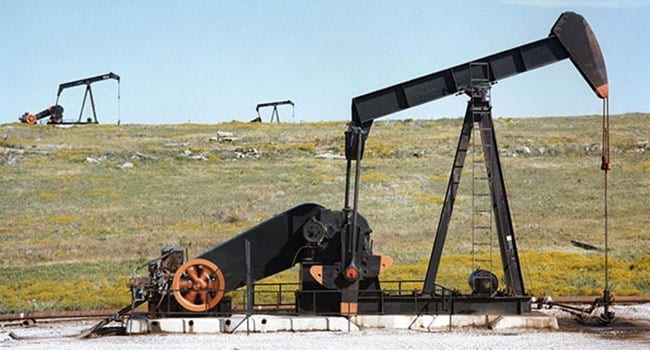 Much is at stake for the oil industry related to the outcome of the United States presidential election on Tuesday.
Much is at stake for the oil industry related to the outcome of the United States presidential election on Tuesday.
What happens if President Donald Trump wins a second term?
What happens if Joe Biden assumes the presidency?
In his first term, Trump loosened methane rules and opened new offshore and Arctic areas to drilling. If the Republican president wins a second term, most expect him to continue to pursue deregulation and expand drilling in previously protected federal areas.
The Trump administration sees drilling on public lands as vital to maintaining the nation’s status as the world’s No. 1 oil and natural gas producer. Oil production from public lands and waters topped a record one billion barrels in 2019.
In contrast, Democratic Party candidate Biden supports ending new oil and gas drilling on federally-managed lands and waters.
Trump is also expected to persist with the policy of easily issuing permits for new crude pipelines and export projects. He’s also expected to remain a vocal player in the supply negotiations among the Organization of Petroleum Exporting Countries and its allies in OPEC-plus. Trump is also expected to continue to keep a tight hold on sanctions against Iran and Venezuela.
If Biden gets elected, Trump’s energy dominance policy would give way to a significantly more middle-of-the-ground strategy. It would include re-engagement in U.S. global leadership towards sustainable energy targets, according to Ehsan Khoman, head of MENA research and strategy at the investment bank Mitsubishi UFJ Financial Group (MUFG).
“A Biden presidency will de-emphasize fossil fuels immediately and would attempt to accelerate the shift to alternative energy,” Khoman told Meghan Gordon in a recent podcast. He said a Biden “presidency will mark the moment when the world’s biggest oil and gas producer officially rejoins the global energy transition.”
Energy transition is here to stay. But the pace of the evolution could pivot on the U.S. elections. From an electoral viewpoint, Biden has had to tread a careful path. In view of the uneasiness felt in the U.S. energy belt, Biden was forced to clarify, “I will not ban fracking. I (only) said no fracking on federal lands.” He emphasized, “we’re going to still need oil. We’re gonna still have combustion engines.”
In July, he presented a plan to spend $2 trillion over four years to significantly escalate the use of clean energy in the transportation, electricity and building sectors. The plan is designed to create economic opportunities and strengthen infrastructure while tackling climate change. The initiative, he said, would create millions of high-paying jobs, a claim he had to underline in the wake of a barrage of questions about the jobs lost due to the transition.
However, the most-watched issue under a Biden presidency would be relations with Iran. A rapprochement with Iran seems certain under a Biden administration, raising the prospect of the return of up to 2.5 million barrels a day of Iranian crude on global oil markets.
The American relationship with Saudi Arabia would also be under discussion by a Biden administration, with reverberations across the global oil markets. A weakening of ties between the two countries could lead to a return of Saudi Arabia’s strategy of defending market share if the OPEC-plus supply co-ordination crumbles. Strengthening Saudi ties with China could also result, Kevin Book of ClearView Energy Partners told Gordon.
Scott Modell of Rapidan Energy Group said a Saudi reset under Biden would also “mark the end of the White House going to bat for U.S. shale at OPEC-plus and restraining a Democratic Congress when it comes to anti-Saudi legislation.”
“I find it unimaginable that a Biden administration would be intervening when global prices are low, pleading with Saudi Arabia to please restrict supply,” said David Goldwyn, the U.S. State Department’s top energy diplomat in the administration of former president Barack Obama.
But when it comes to the oil industry, Biden and Trump stand poles apart.
Toronto-based Rashid Husain Syed is a respected energy and political analyst. The Middle East is his area of focus. As well as writing for major local and global newspapers, Rashid is also a regular speaker at major international conferences. He has been asked to provide his perspective on global energy issues by both the Department of Energy in Washington and the International Energy Agency in Paris.
For interview requests, click here. You must be a Troy Media Marketplace media subscriber to access our Sourcebook.
The views, opinions and positions expressed by columnists and contributors are the author’s alone. They do not inherently or expressly reflect the views, opinions and/or positions of our publication.

